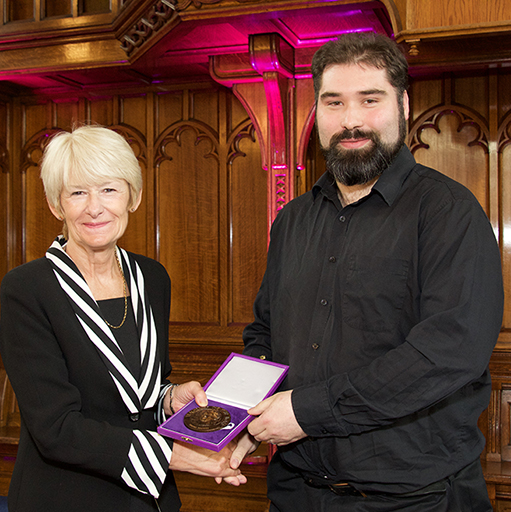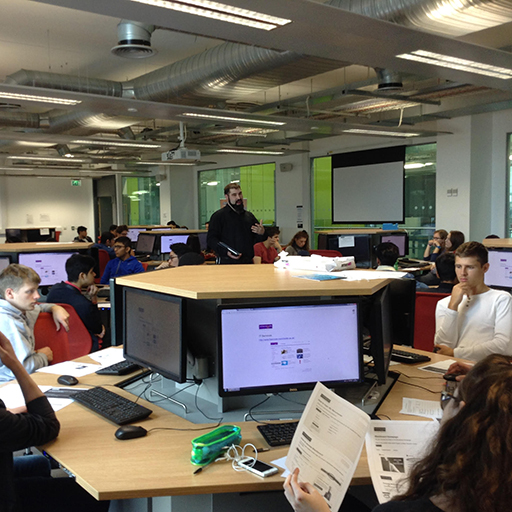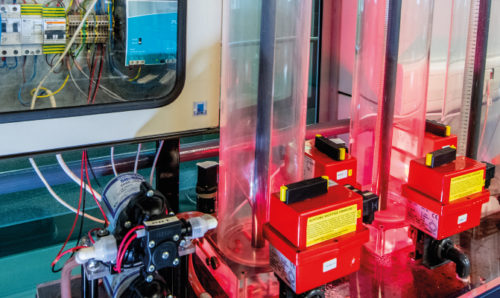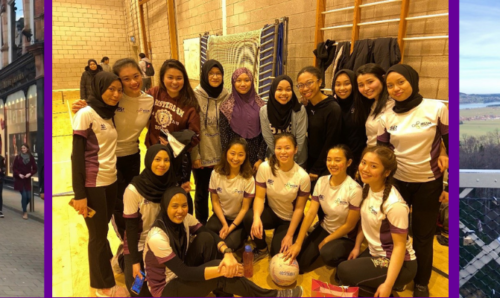Teaching with Tom Rodgers
Meet the Department 31st October 2016
 Hello all, and welcome back to the blog. If you can cast your mind back a few months, you might remember that I interviewed Tom Rodgers as part of the #ChemEngCatchUp series. We were mainly discussing Tom’s research that day, but there was a brief mention of his recent success in the Faculty of Science and Engineering’s Teacher of the Year Award. It seemed like maybe I’d missed the chance to find out more about Tom’s teaching style and teaching in the school in general. So I popped back over for another chat:
Hello all, and welcome back to the blog. If you can cast your mind back a few months, you might remember that I interviewed Tom Rodgers as part of the #ChemEngCatchUp series. We were mainly discussing Tom’s research that day, but there was a brief mention of his recent success in the Faculty of Science and Engineering’s Teacher of the Year Award. It seemed like maybe I’d missed the chance to find out more about Tom’s teaching style and teaching in the school in general. So I popped back over for another chat:
Hi Tom. Thanks for talking to us again. And congratulations on your Teacher of the Year Award – what an achievement? How did it feel to win this award?
I was both pleased and surprised to win the award. Although I wasn’t thinking about even being nominated for this award when preparing teaching activities, and only preparing what I thought would be useful for the students, it is great to be acknowledged.
What do you enjoy most about teaching?
The best thing about teaching is helping students to develop their skills and knowledge. It is great to explain concepts to students and then see how they start to understand and are then able to take those ideas and solve complex problems.
What do you think are the most important aspects when teaching University students?
I think that the most important aspect when teaching University students is to keep them enthused and interested in the subject. I generally try to mix up lectures and problem solving activities; the lectures giving them the background knowledge and the problem solving builds on this knowledge. During the problem solving activities I also try to interact with as many of the students as possible to make sure that they can ask questions.
I also think that it is important to remember that students work at different rates, some understand concepts very quickly and can quickly become bored, while others may take longer to grasp the subject. Therefore, I like to make sure there are a wide variety of optional resources for students to use to study in their own time – such as practice questions, videos of key concepts, and slides of extension topics.
And how does your interaction with Undergraduates differ from the work you do with Postgrads?
The main difference with teaching undergraduates compared to postgraduates is the number; there are many more undergraduates thus it is more difficult to interact with them on a one-to-one basis. However, it is important to try to design activities that allow this one-to-one or small group interaction.
Can you tell us a bit about the teaching initiatives you’ve been involved in here at Manchester?
Over the past few years I have been involved with several teaching initiatives. The main aim for me with these teaching initiatives has been to try to improve the experience for the students and to help them with the skills they need to be successful for their degree.
One of these initiatives is based around developing videos and material for first year laboratories. These allow the students to gain understanding of the material needed for the experiments and the assessments. Another involves developing sessions to help train PhD students as graduate teaching assistants – this both gives them more skills for their development, and also allows them to better support the students they are teaching.
How does being here in Manchester help your teaching?
Being at Manchester helps my teaching due to the fact that there are a large number of people who are interested in teaching and developing students. There is also good interaction between different schools allowing the development of good practice and support to be shared.
Great stuff – thanks, Tom. And once again, huge congratulations on the award. Readers, please feel free to share your experiences of teaching in the school in the comments – we’d love to hear from you.





Leave a Reply